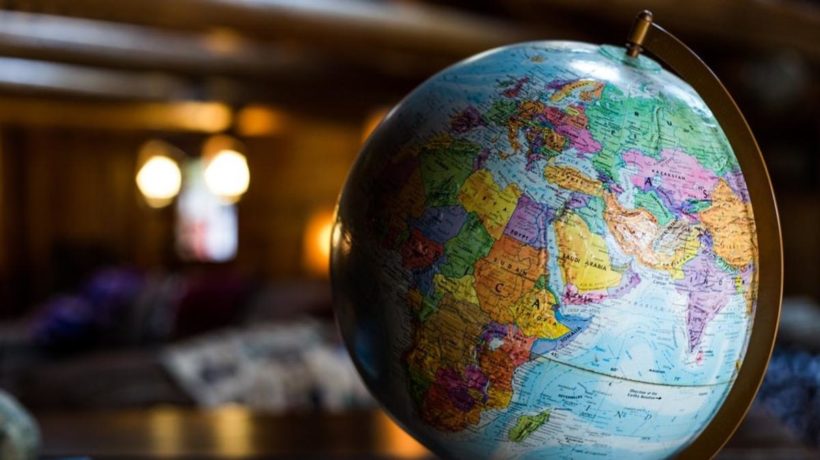It is often said, with reason sometimes, that much of what is known about Africa around the world comes from narratives created and images carefully curated by the media, often global media. African media is often said to either play the role of unsuspecting facilitators of such narratives, in cases where it plays the part of ‘local partner’ for international media houses, or direct, stand-alone, purveyors of such narratives, as they seek to satisfy international news hunger for clichéd African stories by simply feeding such hunger with stories that affirm its prejudices.
Others say that African media players do not always make enough effort to deliberately correct misconceptions about the continent or, at least, counter much of the negative stories making the rounds in global media with positive ones that depict a continent of many narratives, with a plethora of positive stories just waiting to be told. Much of what currently circulates out there is focused on the usual themes of poverty, political and economic instability, corruption, poor health facilities and services, etc.- the global hunger for which seems insatiable.
AFRICAN MEDIA IN THE TIME OF COVID-19
The African media reality, however, is a lot more nuanced than what many people out there have become accustomed to. And, contrary to popular and stubborn perceptions, Africa is neither a country or one homogenous piece of land with one history, one culture, one government and the same political and economic realities from North to South and West to East. The same applies to African media. It is as diverse as the continent in which it operates, both in terms of sophistication and reach.
While free and independent media space has often been quite constrained in much of the continent, with many governments preferring state-owned media over private media, there is an increasing community of pan-African media houses and practitioners who jealously maintain their independence from political power. Africa is also not immune to the growth of citizen journalists.
They are younger, more globally connected, curious, informed, opinionated and, importantly, concerned about the impact of negatively clichéd reportage on how Africans are perceived around the world and on Africa’s economic well-being. Since the onset of the Coronavirus, reportedly in Wuhan, China, in December 2019, and its arrival in Africa during March, African media has sought to work with national, regional and continental bodies, also in concert with the World Health Organisation (WHO), to coordinate messages aimed at Informing, Educating, Empowering, and Assuring communities in specific countries and across the continent about, amongst others:
- The origins and pathology of Coronavirus/COVID-1
- What it is and what it is not
- The best hygienic practices for the protection of self and others
- The importance of testing; especially when symptoms are suspected
- Steps to take after testing positive
- The dangers of “fake News” and the importance of distinguishing between legitimate sources of information on Coronavirus/COVID-19 from false/misleading sources that are often designed to manipulate public opinion
KEY CHALLENGES
Because of the diversity of terrains and disparities in levels of internet access in various parts of the continent, all countries in Africa do not enjoy the same level of media reach and internet connections.
So, while overall levels of access to credible media sources remain a challenge, Africa is also one of the world’s fastest-growing regions in terms of internet access and uptake of internet-enabled smartphones. In terms of usage of social media platforms, March 2019-March 2020 figures indicate that Facebook is the most popular platform at 72.2%, followed by YouTube (11.12%), Twitter (5.61%), Pinterest (5.35%), Instagram (4.55%), and Tumblr (0.06%). Rapid advances in telecommunications in Africa, especially mobile phones and the internet, are crucial enablers of the expansion of much-needed media reach on the continent.
In terms of traditional media, radio remains king. It is followed by local newspapers. Together, they continue to play an important role as sources of information for many communities around the continent, especially those that are far removed from the main cosmopolitan centers. While access to a variety of independent news sources is good for democracies, as it weakens the dominance of government media, which is not always objective, it also opens up undiscerning people to possible misleading information that gets propagated by fake news sites that must always be guarded against.
To overcome these access challenges, African media is finding an increasing numbers of ways to syndicate news locally, through various forms of collaboration with their counterparts, and to ensure that important information on COVID-19 is disseminated through a variety of platforms, including social media, with the same facts across national and regional borders. Healthy partnerships with government communicators also go a long way in avoiding conflicts in facts and pushing back against the misleading influence of fake news sources. This is an endless battle in much of the world.
Thoko Modise is the Acting Chief Marketing Officer and GM: Communication at Brand South Africa; the official marketing agency of South Africa with a mandate to build the country’s brand reputation and to improve its global competitiveness.







